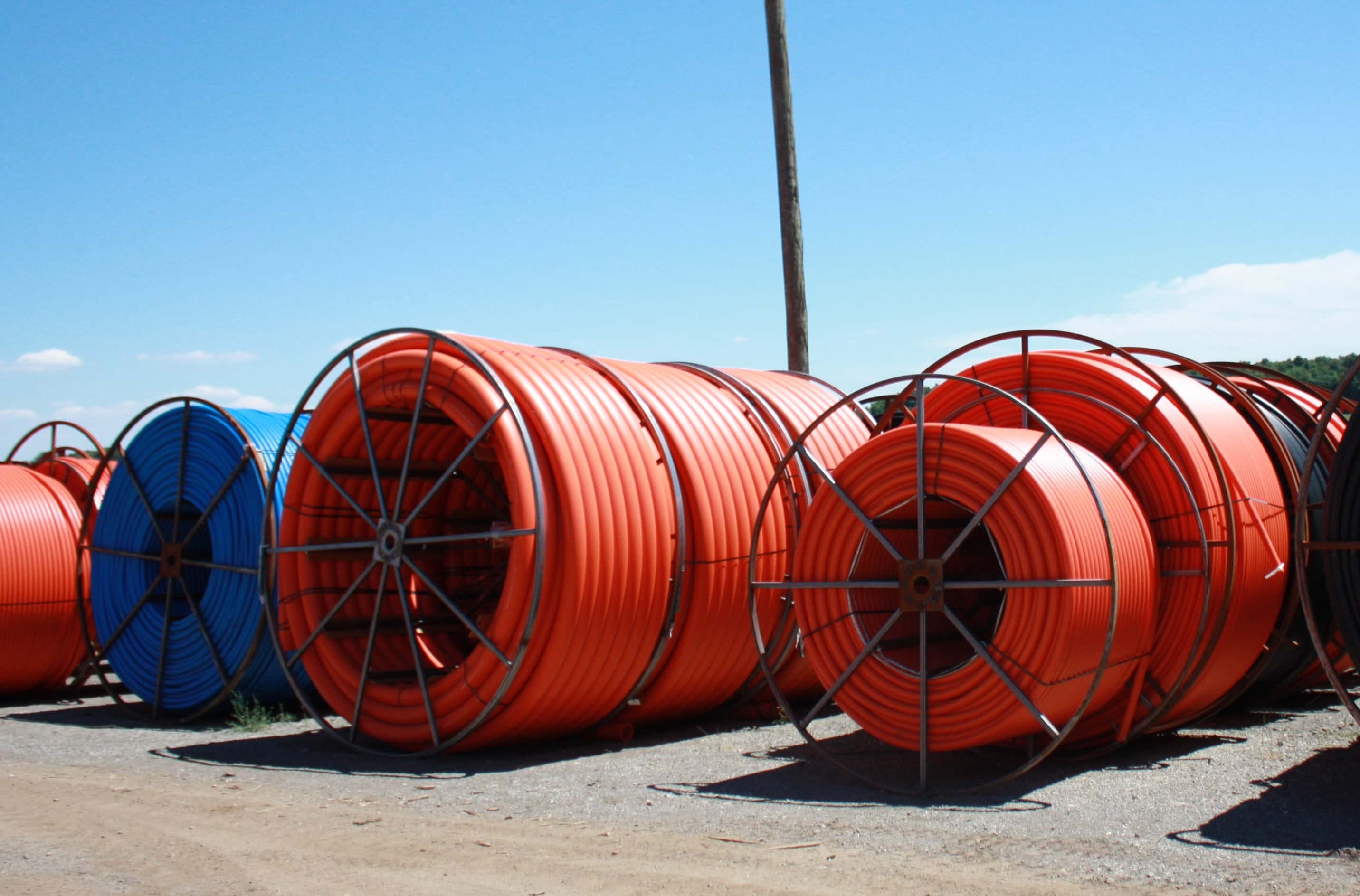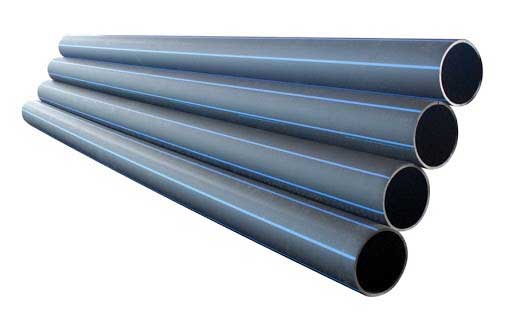How Midland TX HDPE Pipe Fittings in Stock Support Local Projects
Wiki Article
A Comprehensive Guide to the Different Uses of HDPE Pipe in Construction and Sector
HDPE pipes have become an essential element in modern-day construction and industrial applications. Their special properties, such as resistance to deterioration and lightweight style, make them suitable for a vast array of usages. From water systems to farming watering, HDPE pipelines supply services that boost performance and sustainability. Recognizing their varied applications is essential for specialists wanting to enhance framework. What details benefits do these pipes bring to each market?Water Supply and Circulation Solutions
Water system and distribution systems are crucial parts of metropolitan facilities, frequently depending on high-density polyethylene (HDPE) pipelines for their resilience and effectiveness. These systems transportation drinkable water from therapy facilities to consumers, ensuring access and security. HDPE pipelines are preferred for their resistance to rust, chemicals, and severe temperatures, which enhances their long life and decreases maintenance expenses. In addition, their lightweight nature permits easier installation and transportation, making them excellent for numerous urban and country applications.The flexibility of HDPE pipelines allows them to be set up in limited spaces and around challenges, reducing the demand for substantial excavation (Midland TX HDPE Pipe Fittings in Stock). Their smooth interior surface minimizes rubbing losses, boosting water circulation rates. As cities continue to grow, the demand for trustworthy supply of water systems raises, placing HDPE pipelines as a sustainable solution for modern facilities jobs. Their tested record makes them a recommended choice among engineers and urban planners alike
Wastewater Administration and Treatment
Effective wastewater management and treatment are important for preserving public health and wellness and environmental high quality. HDPE pipelines play a vital role in this process due to their durability, resistance to deterioration, and ability to stand up to extreme chemicals. These pipes are typically utilized in various applications, consisting of sewage systems, stormwater drainage, and wastewater therapy facilities. Their lightweight nature promotes less complicated installment and transportation, decreasing labor costs and time.Furthermore, HDPE pipelines have a smooth indoor surface that reduces rubbing loss, advertising efficient circulation rates. They are likewise much less prone to leaks and failures contrasted to typical materials, making sure that impurities are included properly. Moreover, their versatility enables for flexibility in numerous dirt conditions, making them suitable for diverse environmental setups. As industries increasingly focus on lasting techniques, using HDPE pipes in wastewater administration systems lines up with objectives for minimizing ecological effect and enhancing source recovery.
Agricultural Watering Solutions
In farming settings, efficient watering solutions are vital for optimizing crop yields and managing water sources. HDPE (High-Density Polyethylene) pipelines play a crucial function in contemporary irrigation systems due to their sturdiness, flexibility, and resistance to corrosion. Their capacity to hold up against high stress makes them excellent for both surface area and subsurface irrigation applications, guaranteeing uniform water circulation across fields.Farmers can make use of HDPE pipes in drip irrigation systems, which supply water directly to plant origins, lessening waste and promoting healthy and balanced growth. In addition, these pipelines are lightweight and very easy to set up, reducing labor costs and installment time. Their long lifespan and reduced maintenance needs even more enhance their charm in agricultural techniques.
In addition, HDPE pipelines are eco-friendly, as they can be recycled and do not leach harmful chemicals right into the soil. This makes them a sustainable option for farmers intending to adopt eco-friendly agricultural approaches while making best use of performance.
Industrial Applications and Processes
Convenience is a hallmark of HDPE pipes, making them indispensable in different commercial applications and procedures. These pipes are commonly used in chemical handling sectors due to their outstanding resistance to a large range of destructive compounds. HDPE's light-weight nature, combined with high tensile strength, enables simple setup and long-term efficiency sought after settings.In the oil and gas industry, HDPE pipes play a necessary role in transferring hydrocarbons and gases, many thanks to their sturdiness and flexibility - hdpe pipe fittings Midland TX. Furthermore, they are utilized in mining operations for the transportation of slurry and other materials, where traditional piping systems may fail
Furthermore, HDPE pipes are increasingly used in manufacturing centers for water system lines and wastewater administration. Their ability to hold up against severe temperatures and pressures makes them ideal for a range of industrial procedures. In general, HDPE pipelines add significantly to efficiency and safety and security across varied commercial applications.
Stormwater Management and Water Drainage Solutions
Stormwater management and water drainage systems are vital elements in metropolitan framework, developed to handle excess rainfall and reduce flooding dangers. High-density polyethylene (HDPE) pipelines are increasingly used in these systems as a result of their sturdiness, flexibility, and resistance to corrosion. These pipes effectively move stormwater far from booming areas, reducing surface area runoff and protecting against waterlogging.HDPE's lightweight nature promotes simpler installation, minimizing labor prices and construction time. In addition, its resistance to chemicals and environmental stressors assurances long life and reliability in different environments. In addition to website conventional water drainage applications, HDPE pipelines are also used in cutting-edge solutions such as eco-friendly framework, which consists of rain gardens and permeable pavements.

Frequently Asked Questions
Exactly How Does HDPE Pipeline Compare to PVC Pipe in Expense?
Generally, HDPE pipeline tends to be much more costly than PVC pipeline as a result of its enhanced toughness and flexibility. Lasting price factors to consider, such as upkeep and lifespan, may favor HDPE in details applications.What Is the Life-span of HDPE Piping Under Numerous Problems?
HDPE pipes usually have a life expectancy of 50 to 100 years, depending on environmental problems, setup methods, and usage. Factors such as temperature level, dirt type, and exposure to chemicals can substantially affect their toughness.Can HDPE Water Lines Be Recycled After Use?
Yes, HDPE pipes can be reused after use. The reusing process involves thawing down the material, enabling it to be repurposed right into new items, thus advertising sustainability and decreasing environmental effect connected with plastic waste.Exist Any Type Of Particular Installment Challenges With HDPE Pipes?
Installation difficulties with HDPE pipelines consist of correct jointing strategies, making certain ample trench problems, and handling thermal expansion. In addition, knowledgeable labor is needed to take care of specific tools, which can complicate the setup procedure in different environments.
What Certifications Should I Seek When Investing In HDPE Water Lines?
When purchasing HDPE pipelines, one ought to look for qualifications such as ASTM, AASHTO, and ISO, which validate high quality and conformity with market standards, ensuring resilience and efficiency in various applications. - Pipe Manufacturing Midland TXReport this wiki page